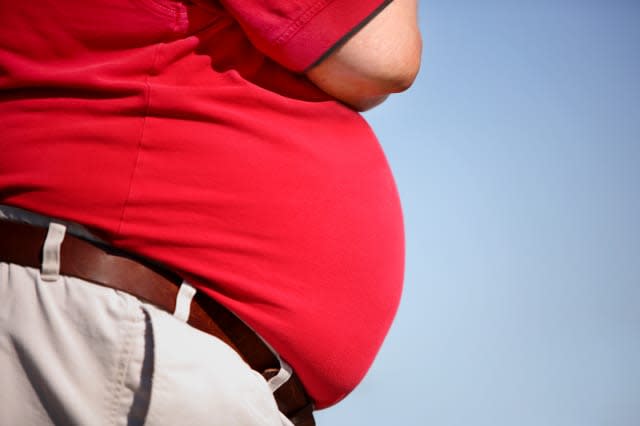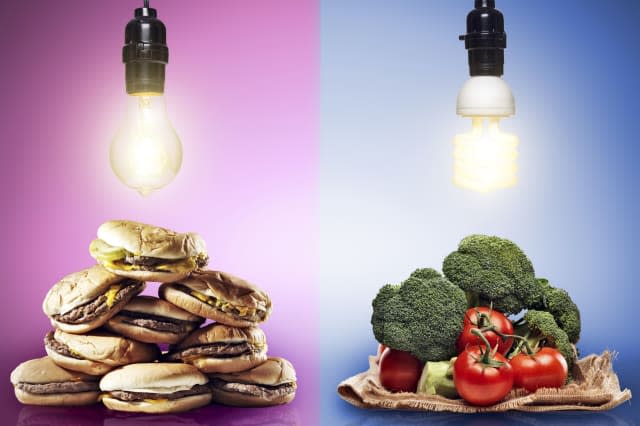We need to tax junk food more

It's an inconvenient truth, but we cannot go on as we are. A new study has shown that three-quarters of men and two-thirds of women will be overweight or obese by 2030.
The projections were made by the World Health Organisation, working with UK researchers, and show that, as well as rising numbers of overweight people (defined as those who have a BMI of above 25 but below 30), we are also on course for around a third of the country to be classed as medically obese (defined as having a BMI of 30 or above).
An inconvenient truth
Now, I do not believe that BMI is a faultless measure - just ask a bodybuilder who is classified as overweight. Nor do I want to take part in fat shaming - I understand that overweight people can still be fit, relatively healthy people. But these figures undeniably point to a growing problem that affects individuals and which also has a serious impact on our economy and spending on health.
Some overweight people never experience negative health consequences, just as some smokers don't. However, it is an undeniable truth that for many people obesity causes real, long-term health issues, affecting the individual and also the country.
A report from the McKinsey Global Institute in 2014 showed that the government spends around £6 billion a year on the medical costs of conditions related to weight, plus a further £10 billion a year treating diabetes.
The institute estimates that this cost could double by 2030, rising to between £10 billion and £12 billion. Official figures suggest that the indirect costs of obesity could be as high as £27 billion this year, once you factor in the impact of issues such as loss of productivity.
Yet our government spends less than £638 million a year on preventing obesity. This cannot be right.
Time to tax
We have left this issue in the hands of large food producers for too long, and now we face a situation where the majority of people will be an unhealthy weight in 15 years' time.
The new government must act to reduce the harm caused by unhealthy foods and hidden sugars; it is too late for nudges and gentle recommendations to exercise more. We need to ramp up tax on takeaways and unhealthy foods, including foodstuffs that seem relatively healthy but are actually laden with sugar.
We must introduce greater taxes on unhealthy foods, including fizzy drinks, sweets, crisps and fast food if we want to stem this pandemic, just as we levy additional taxes against cigarettes and alcohol.
Unfortunately, research from the University of Cambridge suggests that the vast majority of people are opposed to a so-called 'fat tax', which is likely to have a significant impact on the political will.
That's why we need to change our attitudes and support a government to charge higher taxes on junk, allowing them to funnel the money into healthy eating programmes and subsidising nutritious food.
It won't be enough on its own, of course, but it will have an impact. Studies published in the BMJ have suggested that increasing the price of unhealthy foods by 17.5% could cut the number of UK deaths from heart disease by 2,700 a year.
At the very least we could tax the overt junk more, the fizzy drinks, the sweets, the chocolates. Research from the USA has shown that adding a 35% tax to sweetened drinks cut sales by 26%.

Not a silver bullet
There are issues with increasing taxes on foods, I am very aware of that. We live in a time of food poverty, where the poorest are often reduced to relying on food banks to keep their families fed. I do not want to make life harder or hungrier for those people.
But the poorest suffer more from the obesity crisis as well. The cheapest food is often the least healthy food, and the outcome has not been good for less-well-off families.
Earlier this spring a report from the Fabian Commission on Food and Poverty revealed that more than a fifth of children from low-income homes were classed as obese in 2013, compared to just 7% for those in the highest income groups, where obesity rates are falling.
That's not because the poor don't care about their children's health, it's because cheap food is most often unhealthy food.
At this point, some of you may be grumbling that people simply don't know how to cook with cheap, wholesome ingredients – but I would point you to a study from the University of Cambridge published at the end of last year.
It showed that eating healthily costs three times as much as eating unhealthy food. The report warned: "The increase in the price difference between more and less healthy foods is a factor that may contribute towards growing food insecurity, increasing health inequalities, and a deterioration in the health of the population."
To avoid making life even harder for the poorest families, and even middle-income families, a junk tax would need to be combined with other measures. These could include subsidies on healthy food choices, an expansion of the free school meals programme, greater investment in parental education and tighter control on how nutritional information is displayed.
%VIRTUAL-DealsCategoryWidget%
Change for the better
Most people do not want to be overweight or obese. If we are heading for a situation where the majority of people will be then we need to do something drastic and I believe that will include additional taxes on unhealthy foods.
In 15 years' time, my two toddler sons will be men. It cannot be right that they are growing up in a world where they will have a 75% chance of being overweight or obese. It's time for a tax on junk and sugar.
What do you think? Is our writer right to demand tax action or is she calling for a nanny state? Have your say using the comments below.

More on AOL Money
Fizzy drink tax 'would tackle obesity'
Ad banned over cholesterol claims
Sugar tax to tackle obesity



